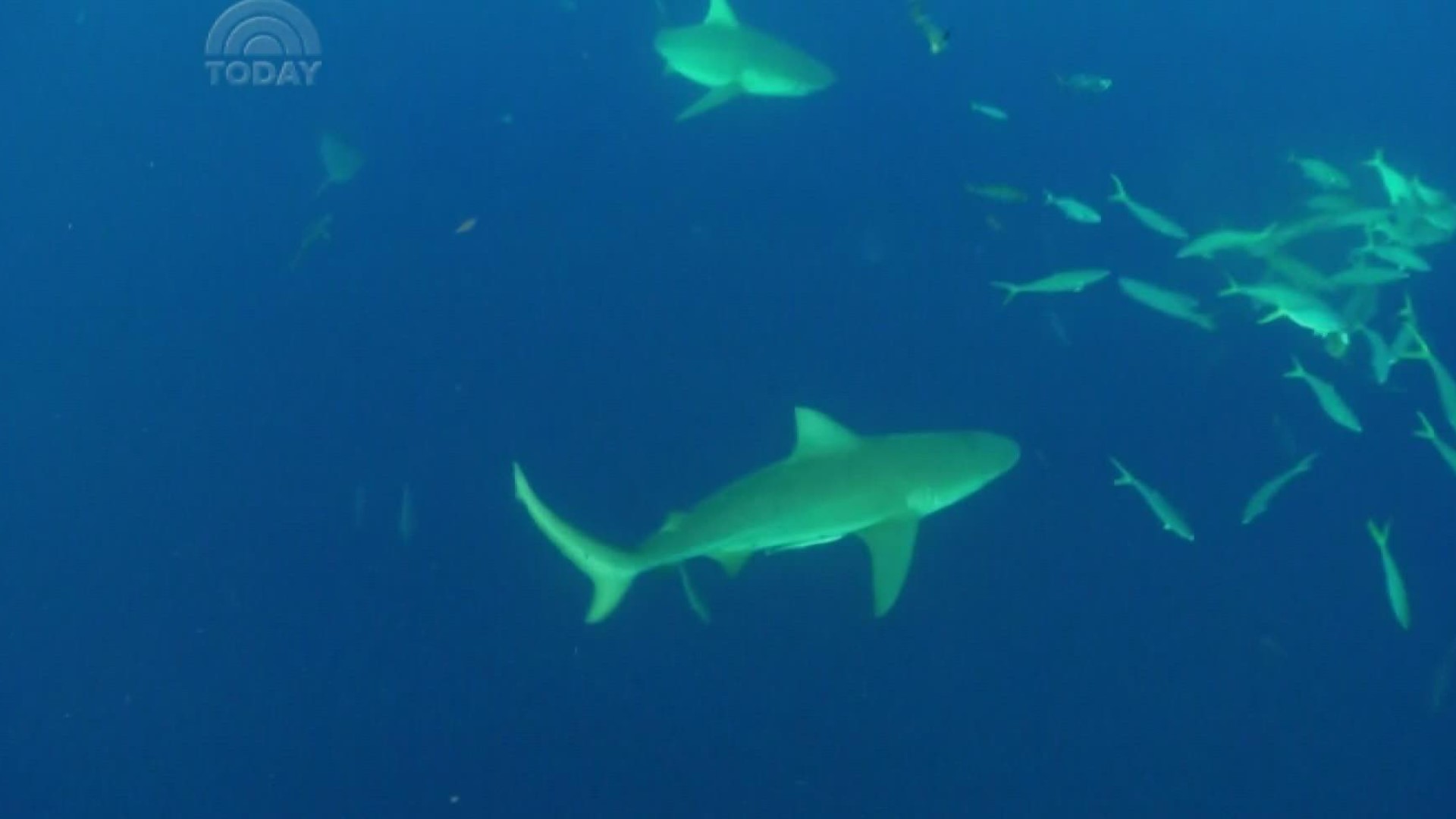JACKSONVILLE, Fla — Maybe you hit up the beach this holiday weekend? More people in the water means more of a chance you could encounter a shark, according to researchers.
It's very unlikely, but if you want to make it even more unlikely and follow along in scientists' research, check out the Ocearch shark tracking website or app. You can see how far the tagged sharks travel and learn about them.
"The ocean tends to be this mysterious place," said Bryan Franks, Jacksonville University marine science professor.
Whether the music from "Jaws" comes to mind when you think about sharks or you want to get a close-up look, the likelihood of you actually meeting a shark is low even though Florida is known as the shark bite capital of the world.
Duval County is ranked fifth and St. Johns County is ranked sixth in the highest number of shark attacks in the country, according to the International Shark Attack File. The catch is the total number from the data dates back to the 1800s.
Jacksonville University partners with Ocearch, which runs the Ocearch shark tracker website and app, where anyone can follow along with scientists' research.
"We've been keeping an eye on Mahone," Franks said about one shark. "It's just a little bit early for him to have gone up here already."
Franks says the tags on these sharks last about five years and ping to a satellite.
"You can't look at the tracker and say, 'Oh, there's no sharks off Jax Beach, I'm going to be perfectly safe,' because as I said, there's only a small number of the sharks with tags," Franks said.
The shark tracker is used especially for research on the great white shark, known as the ultimate predator. Franks says the population of the great white shark is doing well thanks to the Marine Mammal Protection Act.
"We want to see their migration patterns, where they go, when they go there and ultimately why they go there," said Franks. "But then we're also taking a suite of other samples, from blood and muscle parasites."
It's' all part of solving the mysteries of the ocean.
"The questions that I try and answer as a scientist are questions that even when I was a little kid and would go out in my woods looking for salamanders or turtles, I'd want to know," Franks said. "I still get excited about trying to answer those questions."
Researchers say there were at least 73 unprovoked shark attacks last year and most of the shark attacks every year reportedly happen in Florida. That being said, you are more likely to get struck by lightning than get bitten by a shark.

